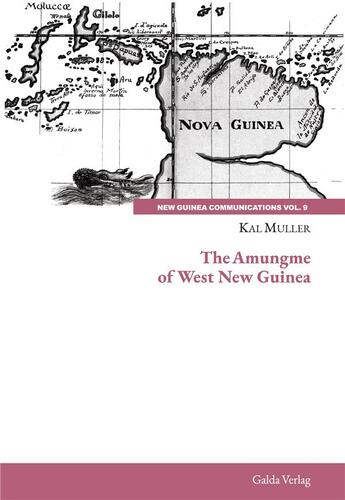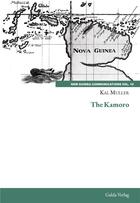-
Date de parution : 22/03/2023
-
Editeur :
Galda Verlag
-
EAN : 9783962032258
-
Série :
(-)
-
Support :
Papier
Résumé:
THE BOOK Aside from the Dani of the Baliem Valley, the Amungme are the best-known highlands tribe in West New Guinea. This is largely due to some of their lands having been taken by the mining company Freeport Indonesia for the development of their mining complex, first around the Ertsberg, then... Voir plus
THE BOOK Aside from the Dani of the Baliem Valley, the Amungme are the best-known highlands tribe in West New Guinea. This is largely due to some of their lands having been taken by the mining company Freeport Indonesia for the development of their mining complex, first around the Ertsberg, then the Grasberg. This second ore body holds the world's largest gold deposit and the third largest concentration of copper.
The Amungme, live to the south of the steep central mountains, while their linguistic brothers, the Damal, spread just to the north of this range. During the early years of the Freeport mine operations, the company paid little attention to the Amungme. Their lands were used with scant compensation as the company paid its taxes to the central government, with no obligation to start any social programs for the Amungme.
The various chapters cover the essential aspects of the Amungme culture, including their origins, their distinctive language, the kinship structure, social organization, the importance of cowry shells, and females in exchanges, leadership, and the various ways of subsisting: hunting, farming, and gathering. The results of the contacts with the outside world begin with the section on Christianity and the pre-contact mystical concept of 'h'ai', and early paradise that can be attained without first expiring. The effects of the large-scale mining operations are described from the early history of Freeport Indonesia and the effects of the discovery of the huge ore body in Grasberg (Grass Mountain). The concluding section describes the current improvements in the treatment of the Amungme by Freeport, including education, health programs, and job training.
THE SERIES The aim is to provide a conduit for the publication of studies on the Island of New Guinea, with its two established political divisions, but will also include other associated patterns of islands.
It will enable contributions from new knowledge workers-with their dissertations-and from established scholars. As there are numerous scholars who would like better coverage of the areas in which they have explored-as a tribute to the people they have worked with-as well as local scholars who understand the importance of their unique areas. It is felt that the approaches being trialed in the visual anthropology part of the series as area studies will bring a wider attention to the remarkable nature of the island.
The first volumes will be on modes of communication: oral history and folklore, and the emergence of a local literature. While the representation of all disciplines is welcome, comparative and whole island studies would be of great interest as well. For this, collaborative works or edited volumes may be needed.
It will allow for academic publications of a more preliminary kind-rather than exhaustive monographs, which are becoming more and more impossible to produce.
Where is the knowledge we have lost?
Donner votre avis















